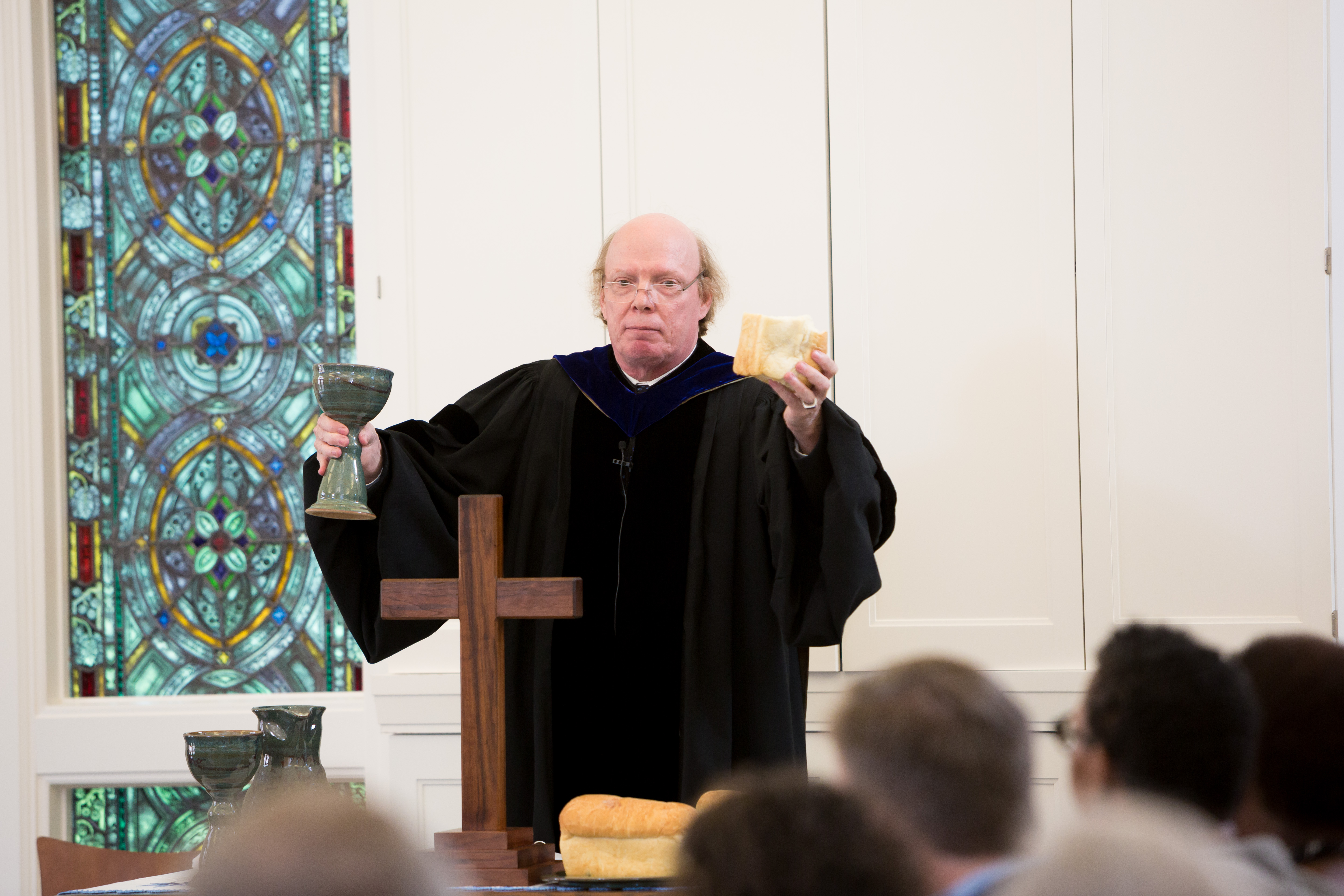Worship, Ecology, and Community Revisited

2019 SUMMER ISSUE / GRADUATION
Testing the connection between action and faith
How does worship shape and form the theological vocabulary, imagination, and action of participants—especially the ways in which liturgy supports engagement in caring for creation? This question drives Paul Galbreath, Union Presbyterian Seminary Professor of Theology, in his new research funded by a grant from the Calvin Institute of Christian Worship.
The result of conversations and teaching conducted with six congregations nearly a decade ago, Galbreath’s original research led to his 2014 publication, “Leading into the World,” in which he explored how congregations engage in acts of caring for the earth. In his new research, he seeks to investigate the inverse. He is now exploring the intersection between ecology, ritual studies, and Christian worship—intentionally working with those six original congregations in developing liturgical acts of earth care and assessing how those acts shape their theological imaginations. His hope is to examine whether intentional liturgical practices lead to the “elimination of a perceived disjunction between many who are deeply committed to environmental action and their Christian faith, yet who do not consciously link the two.”
To test the establishment of this new connection between action and faith, Galbreath will return to those congregations and see what has transpired in the intervening years with regard to their environmental commitments, practices, and theology. From his learnings, he will craft a Lenten study focused on earth care habits as integral liturgical practices within a worshiping community, exploring the capacity of such practices to shape theological imagining and to link earth care and faith commitments.
Galbreath hopes his pilot study will prove effective in creating this link and form the basis for a new resource for the wider church community, “shaping ecological practices and theological imaginations of congregations around the globe.”

